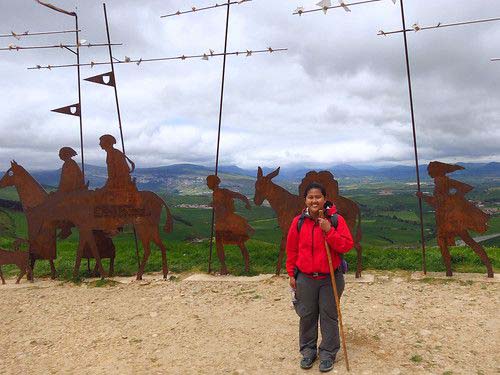Spirituality and Depression: The Surprising Relationship

Spirituality and depression are not discussed together too often, but probably they should be!

Some might even see spirituality as potentially banishing depression, but the relationship between the two is not nearly that simple. We often tend to see spirituality in terms of light, and possibly joy, and we can easily slip into tending to view it as almost a kind of “cure” for depression. Yet the relationship between depression and spirituality is subtle and complex.
Spirituality May Not “Cure” Depression
There are diverse opinions about whether spirituality and religion can assist people in dealing with depression. Some studies suggest that there is a positive link, but some recent studies have been more cautious in their findings.
A common thing in our time is to find people who would describe themselves as “spiritual, but not religious”. There is a movement in our time away from formalized belief systems in favour of various types of more personal spiritual exploration, characterized by activities such as yoga, meditation and even pilgrimages like the Camino de Santiago. SUch exploration can be a very common part of the midlife transition.
Some studies done on those who describe themselves as “spiritual but not religious” have found that there is a higher incidence of the symptoms of depression amongst those who would describe themselves as “spiritual”, but who don’t participate in formal religious institutions or activities, than in those who might describe themselves as more conventionally religious. “Spirituality” can sometimes tend to be a bit ungrounded, and a bit disconnected from the realities of living everyday life, in ways that may even actively contribute to a sense of loneliness and isolation.
How do we get to a spirituality that doesn’t contribute to depression, and that may even help us to overcome depression?
How Do I Deal with Spiritual Realities?
Jung saw spirit as a non-material aspect of human existence that can’t really be fully described or defined. Yet, he certainly didn’t feel that this elusive character means that spirit is unreal — far from it! Spiritual realities have their own sense of purpose connected to them, quite distinct from our human expectations. Jung sees the appearance of this dimension of human life as usually associated with strong feeling, as researchers like Profs. Neal Krause and Kenneth Pargament have emphasized in more recent times.
But there’s something important to recognize here. In some ways, Jung and others like him see spiritual reality as basically the opposite of the material reality that we live in every day. So, potentially, we could live our lives, eat sleep, work and do all the regular things that we do, and not really have any connection to spiritual reality. On the other hand, we could choose to live almost entirely in spiritual reality, with as little connection with the pragmatic realities of the world as possible.
However, Jung argued that neither of these paths would ultimately lead to a very meaningful life. From his perspective, in Andrew Samuels’ words, “spiritual goals must be embodied for fulfillment.”
So, how can we bring spiritual and material realities together, so that the relationship between spirituality and depression is a positive one?
Living Out Our Spirituality
One of the key requirements of a spirituality that is truly grounded in, and connected with, our own real lives is that the spirituality genuinely emerges from our lived experience. There is only one way that this can happen, and that is, if we examine our own lived experience, and really seek to understand who we are and what has happened to us in our lives in an honest and self-compassionate way. Only a spirituality in which all that we are can be welcomed in an open-hearted way can be a spirituality that helps us move away from depression, rather than miring us deeper in it.
One very effective way of understanding and developing compassion for our own unique lives is through /a-midlife-transition. Engaging in therapy or analysis with a therapist who is attuned and sensitive to spiritual values can be a powerful way of integrating one’s journey to wholeness, and one’s particular spiritual path.
